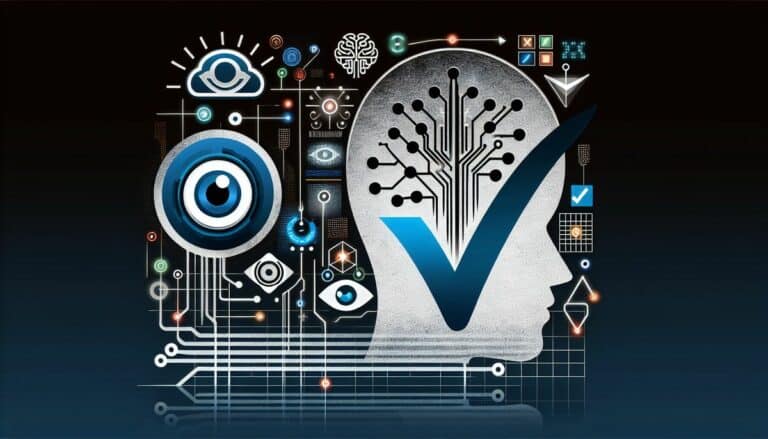Integrating Artificial Intelligence (AI) into existing Software as a Service (SaaS) systems represents a significant leap towards innovation. SaaS companies looking to incorporate AI functionalities are compelled to navigate technical hurdles, strategic challenges, and must recalibrate their system architectures substantially. The ambitious endeavor of driving AI integration mandates meticulous planning and a thorough consideration of operational impacts to maintain service excellence and realize AI’s considerable advantages.
Key Takeaways
- Strategic planning and architectural adjustments are vital for AI integration in SaaS.
- AI amplifies SaaS capabilities by automating tasks, advanced analytics, and enhancing data handling.
- Challenges such as system compatibility, integration complexities, and hardware constraints need addressing.
- Future directions for AI in SaaS point to industry-specific solutions, augmented user interfaces, and predictive capabilities.
- Skill development, robust security, and API utilization are essential for effective AI adoption.
Understanding the Integration Complexity
Strategic Planning for AI Integration
- Identify business goals that AI can help actualize.
- Evaluate the existing IT setup to ascertain readiness for AI adoption.
- Design a detailed implementation roadmap including budgets and timelines.
Navigating Software Architecture Modifications
- Review currently deployed software architectures systematically.
- Identify necessary shifts to support AI capabilities.
- Apply changes systematically to minimize operational disruptions.
Ensuring Operational Continuity
- Develop a structured communication strategy for all teams.
- Keep the AI integration process under rigorous scrutiny to troubleshoot promptly.
- Perform exhaustive tests to guarantee AI’s effective functionality within the SaaS environment.
The Role of AI in Enhancing SaaS Capabilities
Automating Routine Tasks
- AI assists in alleviating manual workloads by automating routine tasks, enabling focus on strategic initiatives.
- Applications span from data entry enhancements to optimizing customer engagements through AI-driven chatbots utilizing natural language processing.
Facilitating Advanced Analytics
- Utilizing AI tools allows swift, precise analysis of extensive datasets that inform critical business insights.
- These analytics are essential for trend identification, demand forecasting, and data-driven strategic making.
Transforming Data Handling
- AI amplifies data management efficiency and secure processing within SaaS environments.
- The technology powers up capabilities such as real-time data manipulation and sophisticated data mining.
The adoption of AI in SaaS goes beyond operational enhancement to fostering continuous innovation.
Challenges of AI Integration in SaaS
Despite AI’s promising potential, integrating it into established SaaS platforms invites a host of challenges that can impact the successful deployment and ongoing effectiveness of these solutions.
System Architecture Differences
- Significant compatibility challenges may arise between existing SaaS frameworks and new AI technologies.
- Infrastructure improvements are often necessary to accommodate new AI features.
- Architectural incompatibilities might cause disruptions during the integration efforts.
Integration Difficulties
- Integrating AI entails the complex task of synchronizing new AI systems with established business procedures and data systems.
- The integration often demands extensive testing phases to ensure functionality within the SaaS architecture.
Hardware Limitations
- The sophisticated hardware needed for full AI functionality might not be present in existing setups.
- Upgrading hardware can be cost-intensive and may not always be feasible.
- Limited processing power and inadequate storage can hinder the deployment of advanced AI models.
Addressing these integration challenges strategically is crucial for realizing AI’s full potential within SaaS systems.
Future Prospects of AI in SaaS
The forward path for AI in SaaS looks robust, poised to significantly alter how services are structured and delivered. Looking forward, distinct areas emerge as particularly transformative:
What’s Holding Your Business Back?
Discover the surprising roadblocks that could be costing you time, money, and growth.
Our expert assessment provides actionable insights and a clear roadmap to success. Get your personalized assessment and learn the exact steps you need to take to streamline operations, boost productivity, and achieve your goals.
-
Industry-Specific Applications: AI can drive the development of bespoke solutions crafted for the distinct demands of various sectors, enriching service delivery.
-
Refined User Interfaces: AI’s capacity to tailor user experiences by analyzing behavior and predicting needs will revolutionize user interactions.
-
Advanced Predictive Insights: Through detailed data analysis, AI will empower SaaS companies with foresight into market trends, user behavior, and operational anomalies.
AI’s continuous evolution signals dynamic advancements for SaaS, heralding exciting developments for both providers and their user bases.
Training SaaS Teams for AI Utilization
Skill Development
- Pinpoint crucial AI technologies that are applicable to your SaaS services, such as machine learning and natural language processing.
- Forge a comprehensive training module blending theoretical knowledge with hands-on applications.
- Promote continual learning through online platforms, workshops, and seminars.
Adoption of AI Tools
- Initiate with a pilotTest project employing AI elements on a smaller scale.
- As proficiency increases, broaden the AI integration across more segments of your operations.
- Encourage an ongoing dialogue with your team to refine integration processes.
Continuous Learning and Adaptation
- Encourage a proactive culture where innovation and learning are prioritized and rewarded.
- Maintain abreast of cutting-edge AI developments and evolving industry dynamics.
- Consistently refresh training content to incorporate emerging insights and technologies.
A well-trained team familiarized with AI capabilities stands to significantly boost your company’s productivity and adaptation in an AI-propelled industry landscape.
Security Concerns with AI Integration
Data Privacy Issues
- Maintaining data confidentiality and integrity is crucial since AI deployments heavily depend on comprehensive data sets.
- Strict adherence to legal standards such as GDPR and CCPA is essential, demanding stringent data management and protective measures.
- It’s imperative to implement a detailed data governance framework to manage risks and secure AI operations effectively.







